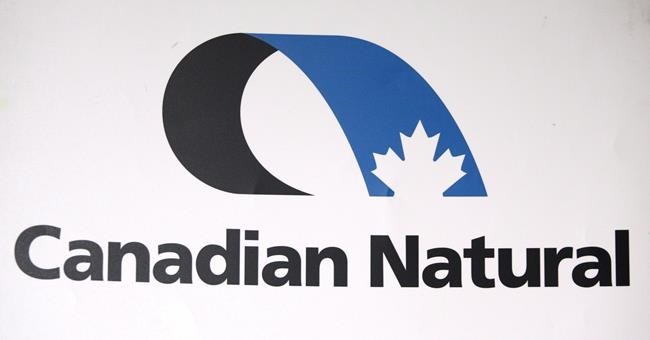CALGARY — The chief executive of oil and gas giant Canadian Natural Resources Ltd. says Canada's oil and gas sector is banking on technology and innovation to reduce its greenhouse gas footprint over time, but won't be able to do it without the support of federal and provincial governments.
On Thursday, CNRL chief executive Tim McKay said the company "will require collaboration" from government in order to meet its goal of achieving net-zero greenhouse gas emissions by 2050.
In an interview, McKay said the goal is achievable, but CNRL — as well as the other five companies that are part of the Oil Sands Pathway to Net Zero alliance — need certainty around future government policies and expectations.
"If you do a carbon reduction project, you want to make sure the goalposts don't change over time," McKay said. "So to me, it's really understanding the time frame and what the expectation is."
McKay's comments come the same week Prime Minister Justin Trudeau and other government representatives are attending COP26, the UN climate conference in Scotland. Among other things, Canada has committed to a federal cap on greenhouse gas emissions produced by Canada's oil and gas industry.
On Thursday, Canada also signed onto an international agreement to stop new direct public finance for coal, oil and gas development by the end of 2022.
McKay pointed out that Alberta has had a cap on emissions from the oilsands specifically since 2015, and the industry has been able to work within that.
"So I don’t know that we're worried, but obviously we need to see the details and understand them," McKay said.
In the third quarter of 2021, CNRL set new environmental targets. It says by 2030, it will reduce absolute methane emissions by 50 per cent from its 2016 baseline, and by 2026, will reduce in situ freshwater usage and mining freshwater usage intensity by 40 per cent from 2017 baselines.
McKay said the low-hanging fruit when it comes to emissions reduction is carbon capture and storage at its oilsands site. The company is the largest owner of carbon capture and storage capacity in the Canadian oil and gas sector. Its Quest carbon capture facility at the Athabasca Oil Sands project has captured 5 million tonnes of C02 over the last five years, and the company is also a 50 per cent partner in the North West Refinery, which supplies C02 to the Alberta carbon trunk line, a large-scale carbon capture and transportation project.
CNRL's daily production averaged 1,237,503 barrels of oil equivalent per day in the third quarter of 2021, up from 1,111,286 a year ago. Like all Canadian oil and gas producers, the company benefited from surging commodity prices — posting a third-quarter profit of $2.2 billion.
CNRL also announced Thursday it will raise its quarterly dividend by 25 per cent, to 58.75 cents per share.
Canadian Natural's profit amounted to $1.86 per diluted share for the quarter ended Sept. 30, up from $408 million or 35 cents per diluted share in the same quarter last year.
The company reported revenue of $7.71 billion, up from $4.5 billion in the third quarter of 2020. It also decreased its net debt to approximately $15.9 billion, down from $18.2 billion in the second quarter.
McKay acknowledged that a cap on emissions from oil and gas production may make it difficult for companies like CNRL to grow organically in years to come. However, he said there are other ways to continue to grow and add value for shareholders.
"You can grow through acquisitions as well," he said. "To me, one of the things we do very well is we’re a very good operator, and as long as you’re a good operator, you can take opportunities to consolidate and do a better job and grow your production.”
This report by The Canadian Press was first published Nov. 4, 2021.
Companies in this story: (TSX:CNQ)
Amanda Stephenson, The Canadian Press



